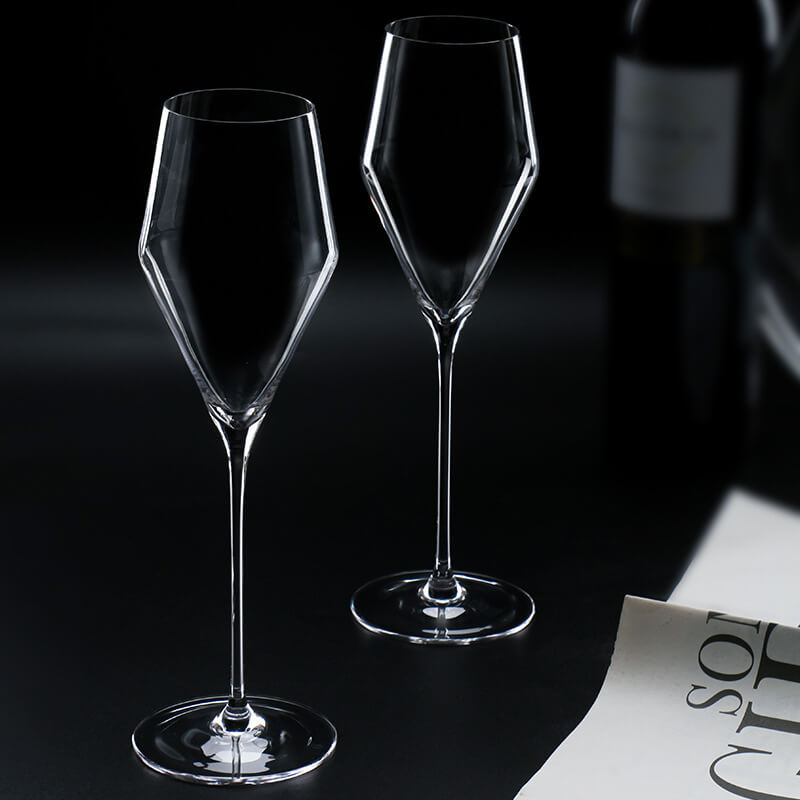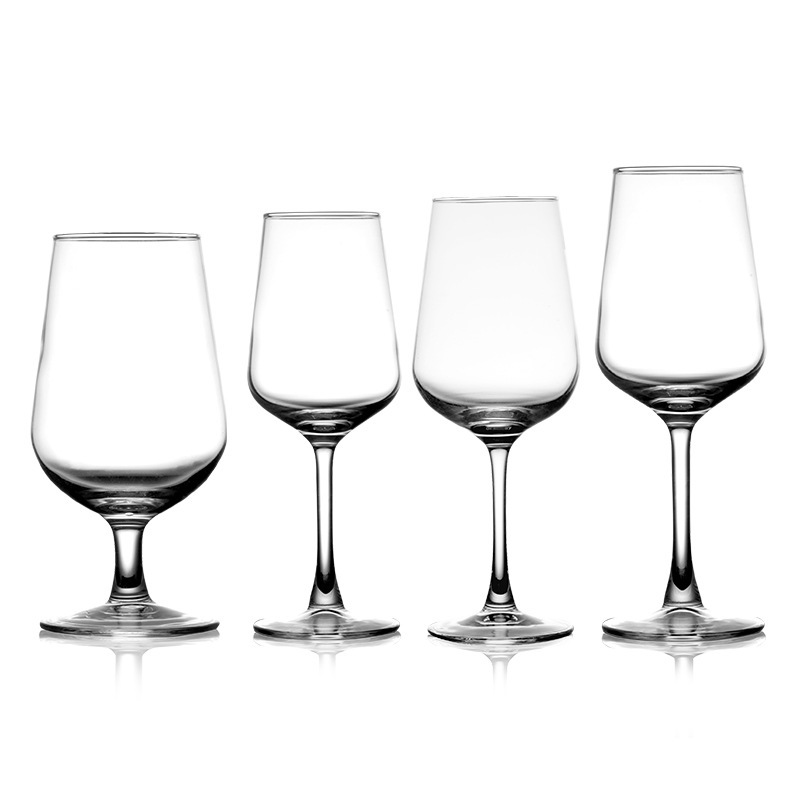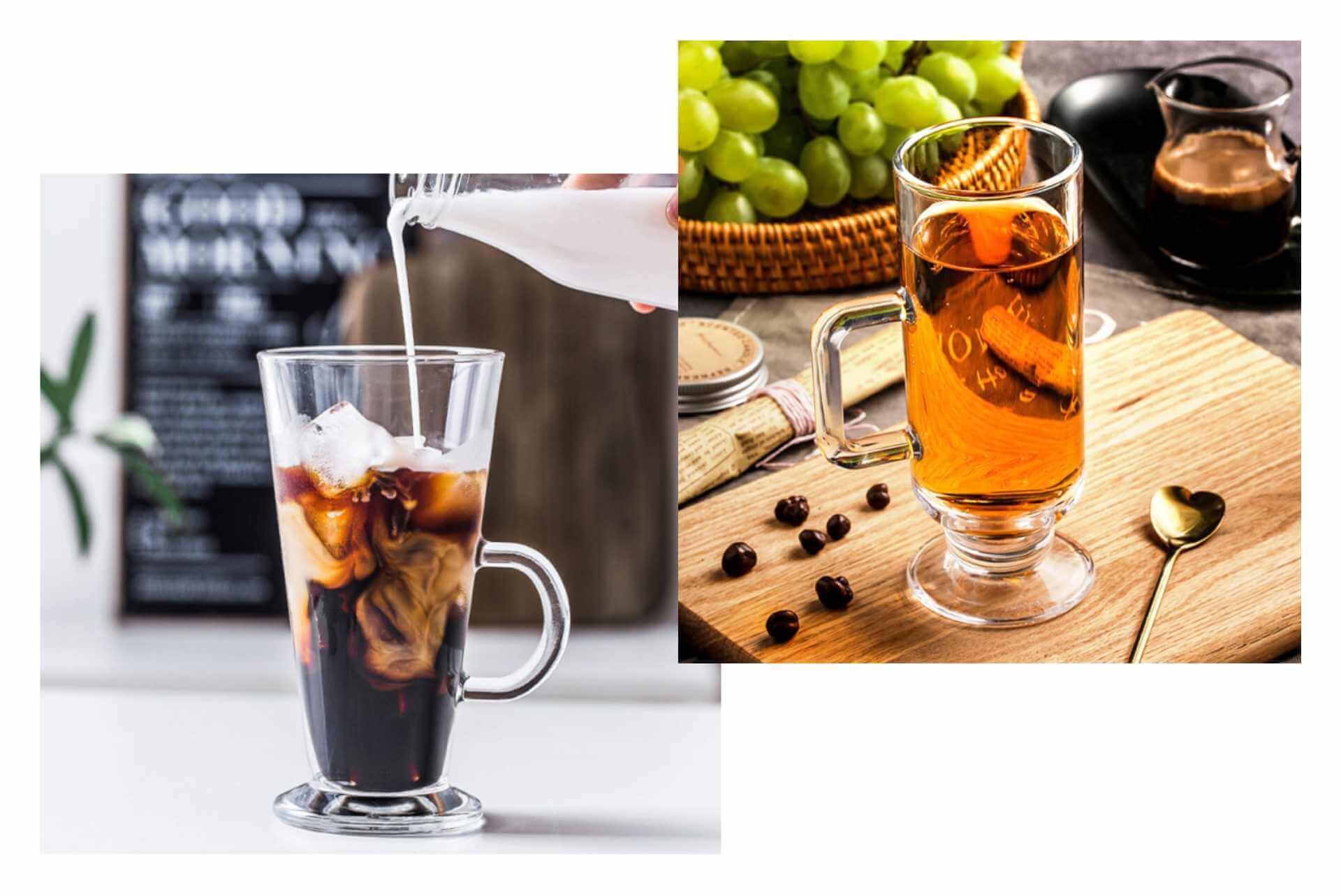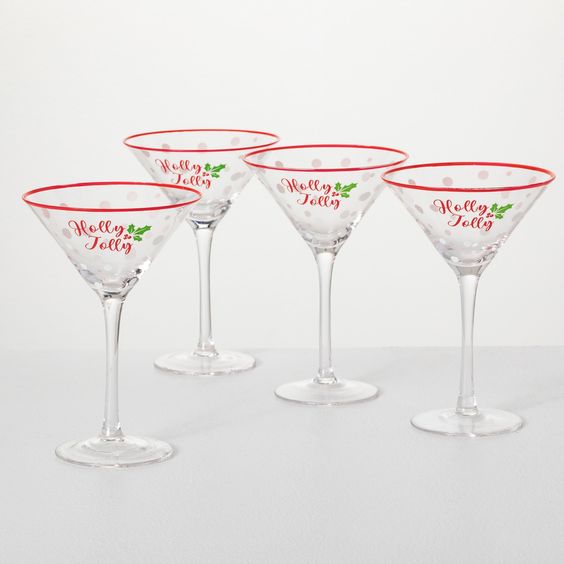Introduction – Are Wine Glasses Dishwasher Safe?
Wine glasses, a staple in dining culture, are more than mere containers for sipping your preferred wines. They are a symbol of sophistication and an integral part of the culinary experience, enhancing both the flavor of the wine and the aesthetic of the table setting.
However, maintaining the pristine condition of wine glasses raises a crucial question: Are Wine Glasses Dishwasher Safe? This query is not just about practicality, but also about preserving the elegance and functionality of these delicate pieces.
Lida Glassware, renowned for its mastery in creating bespoke glassware, steps into this conversation with its deep-rooted knowledge and experience. Specializing in high-quality, custom-made glass products, Lida Glassware understands the importance of material selection and proper care in preserving the integrity and longevity of wine glasses.
In this article, we will explore the dishwasher safety of wine glasses, drawing upon Lida Glassware’s extensive expertise to provide insightful tips and advice for keeping your glassware in impeccable condition.
Materials and Design of Wine Glasses
Wine glasses come in an array of materials and designs, each selected for its unique properties and the way it enhances the wine-drinking experience. Generally speaking, there are four materials used in the glassware production. They are soda lime glasses, borosilicate glasses, crystal and lead-free glass.
Crystal Wine Glasses: Crystal is prized for its brilliance and clarity, offering a visual purity that enhances the wine’s appearance. Its refined texture allows for a thinner rim, which is believed to improve the wine-tasting experience. Crystal glasses can have varying lead content; traditional crystal contains lead oxide, which adds to the glass’s weight and sparkle. However, concerns about lead leaching have led to the development of lead-free crystal, which substitutes other metals but retains the desirable characteristics of traditional crystal.
Lead-Free Glass Wine Glasses: Lead-free glass, made without any lead content, is a safer alternative and has become increasingly popular. It’s lighter than crystal and often more durable, making it a practical choice for everyday use. While it may not have the same sparkling quality as crystal, it still offers excellent clarity and can be crafted into a variety of elegant designs.
Soda Lime Glass: Soda Lime Glass is the most common type of glass and is used widely in the manufacturing of a variety of glass products, including window panes, glass containers, and everyday glassware. It’s made primarily from silicon dioxide (SiO2), sodium oxide (Na2O) from soda ash, and calcium oxide (CaO) from lime. This combination gives Soda Lime Glass its signature properties: it’s relatively inexpensive, clear, and has good hardness. However, it’s more prone to thermal shock and less chemically durable compared to borosilicate glass. This makes it less ideal for situations where rapid temperature changes occur or where high chemical resistance is required. Despite these limitations, its affordability and versatility make it a popular choice for many everyday applications.
Borosilicate Glass: Borosilicate Glass, known for its impressive durability and resistance to thermal shock, is made from silica and at least 5% boron trioxide. These components allow the glass to withstand very high and low temperatures without cracking, making it ideal for applications where temperature stability is crucial. This type of glass is commonly used in laboratory equipment, cookware, and high-quality kitchenware. It’s also more resistant to chemical corrosion, which is a significant advantage in scientific settings. While it is more expensive than Soda Lime Glass, its unique properties like high thermal and chemical durability make it a preferred choice for products that demand safety and longevity under extreme conditions.
| Feature | Crystal Wine Glasses | Lead-Free Glass Wine Glasses | Soda Lime Glass | Borosilicate Glass |
|---|---|---|---|---|
| Material Composition | Contains lead oxide (traditional) or other metals (lead-free) | Made without lead content | Common form of glass using sodium carbonate and lime | Heat-resistant glass made with silica and boron trioxide |
| Weight | Heavier | Lighter | Heavier than borosilicate, similar to crystal | Lighter and more durable than soda lime glass |
| Clarity and Brilliance | High brilliance and clarity; more sparkling | Good clarity but less sparkling than crystal | Good clarity, less brilliant than crystal | Good clarity, more resistant to thermal shock |
| Durability | Less durable, more prone to chipping and cracking | More durable, suitable for everyday use | Prone to thermal shock, less durable than borosilicate | High durability, resistant to thermal shock |
| Safety | Traditional crystal may have lead leaching concerns; lead-free is safer | Safer, no concerns of lead leaching | Generally safe, but can shatter under extreme temperature changes | Very safe, high resistance to thermal shock and chemicals |
| Usage | Often used for special occasions due to elegance | Ideal for everyday use and practical settings | Widely used for everyday glassware | Common in lab equipment and heat-resistant kitchenware |
| Rim Thickness | Thinner rim, enhancing the wine-tasting experience | Slightly thicker rim than crystal | Typically thicker rim | Can be made thin, but typically thicker due to durability |
| Cost | Generally more expensive | More affordable | Most affordable, widely available | More expensive than soda lime, varies based on product |
At Lida Glassware, the choice of material is a critical aspect of our custom design process. We understand that each type of glass has its unique attributes and impacts the wine experience differently. In our custom designs, we consider not just the aesthetic appeal but also the practical aspects of durability and usage.
For instance, when crafting glasses for more robust, everyday use, we might opt for high-quality lead-free glass, known for its resilience and ease of maintenance. On the other hand, for more luxurious or special occasion pieces, we may lean towards the classic elegance of crystal, ensuring a thinner rim and a more delicate feel, perfect for an enhanced tasting experience.
Our design process also involves considering the specific needs and preferences of our clients. Whether they are looking for glasses that are grand and opulent or simple and functional, we tailor our materials and designs accordingly. The balance of beauty, functionality, and durability is at the heart of every piece we create at Lida Glassware, ensuring that each glass is not only a work of art but also a practical addition to any table setting.
How Dishwashers Clean
Dishwashers are a common household appliance designed to clean and sanitize dishes and glassware efficiently. Understanding how they work, especially in the context of cleaning glassware, involves looking at their key operational aspects.
- Spraying Mechanism: Dishwashers clean through a series of spray arms that shoot hot water and detergent at the dishes. This water is typically heated to a high temperature, ensuring effective cleaning and sanitization. For glassware, this mechanism must be gentle enough to avoid causing damage like chips or cracks.
- Detergent and Water Action: The detergent used in dishwashers is formulated to break down and remove food particles, stains, and residues. When combined with the mechanical action of water sprays, it effectively cleans the surfaces of glassware. Some detergents also include rinse aids to prevent water spots, crucial for maintaining the clarity of glass items.
- Cycle Phases: A dishwasher usually operates through different phases – pre-wash, main wash, rinse, and dry. During the main wash, where most cleaning happens, water temperature and detergent strength play a significant role in determining the cleaning efficacy. The rinse phase uses clean water to remove any remaining detergent residue.
- Heat and Drying: After rinsing, dishwashers use heat for drying. This phase is critical for glassware; excessive heat can cause stress on glass items, leading to potential damage.
Factors Affecting the Cleaning of Glass Items:
- Water Temperature: The ideal temperature for washing glassware should be high enough to sanitize but not so high as to cause thermal shock, especially for delicate glasses. Typically, a moderate to high temperature (around 120-140°F or 49-60°C) is effective, yet safe for most glassware.
- Detergent Type: Using the right detergent is crucial. Harsh detergents can etch and dull the surface of fine glassware. It’s advisable to use a mild, glass-friendly detergent, especially for delicate and high-quality glasses.
- Rinse Aid: Rinse aids help prevent water spots on glassware by allowing water to flow off the surfaces more easily during the final rinse. This is especially important in areas with hard water.
- Load Positioning: How glassware is positioned in the dishwasher affects cleaning efficiency and safety. Glasses should be placed securely on prongs to prevent movement and contact with other items, which can lead to chips or cracks.
- Hard Water vs. Soft Water: The mineral content in water can affect glassware cleaning. Hard water can leave mineral deposits on glasses, while soft water, combined with the right detergent, can result in a more thorough and spot-free cleaning.
Understanding these factors and the working mechanism of dishwashers can help in achieving clean, spotless, and damage-free glassware after every wash.
Compatibility of Wine Glasses with Dishwashers
Here’s a table that compares the compatibility of different types of wine glasses with dishwashers, along with the dishwasher safety of Lida Glassware products:
| Glass Type | Compatibility with Dishwashers | Lida Glassware Products |
|---|---|---|
| Crystal Wine Glasses | Low – risk of clouding and damage | Limited – recommended for handwashing |
| Lead-Free Glass Wine Glasses | Moderate – more durable, but care is needed | Highly compatible – designed for durability and dishwasher safety |
| Soda Lime Glass Wine Glasses | Low – prone to thermal shock and damage | Varies – some are dishwasher safe, others recommended for handwashing |
| Borosilicate Glass Wine Glasses | High – resistant to thermal shock and damage | Highly compatible – suitable for regular dishwasher use |
Conclusion
The suitability of wine glasses for dishwasher cleaning varies significantly based on the material and design of the glasses. This exploration has highlighted several key points:
- Material Matters: Crystal wine glasses, particularly those with lead content, are generally less suitable for dishwashers due to the risk of clouding and damage. In contrast, lead-free glass wine glasses offer moderate dishwasher compatibility, being more durable and less prone to such issues.
- Consider Design and Quality: The design of the wine glass, including factors like rim thickness and overall durability, also plays a crucial role in determining its suitability for dishwasher use. High-quality, well-designed glasses, such as those produced by Lida Glassware, can withstand the rigors of dishwasher cleaning more effectively.
- Lida Glassware’s Commitment: Lida Glassware’s expertise in custom glassware shines through in its commitment to quality and functionality. The company’s products are designed to balance aesthetic elegance with practical resilience, making many of its lead-free glass wine glasses suitable for dishwasher use.
- Adaptability of Lida Glassware Products: Understanding the diversity of glass materials, Lida Glassware adapts its product range to include both dishwasher-safe options and more delicate pieces that are recommended for handwashing. This adaptability ensures that customers can choose products that best suit their lifestyle and cleaning preferences.
In conclusion, while the choice to clean wine glasses in a dishwasher depends on the specific type of glass and individual care instructions, Lida Glassware stands out for its dedication to producing high-quality, durable, and elegant glassware that caters to a range of needs and preferences. Their expertise in crafting custom glass products ensures that whether you choose to handwash or use a dishwasher, your wine glasses will maintain their beauty and integrity.
Visit the Lida Glassware website today to browse our selection and learn more about our commitment to quality and design. Each piece is a testament to our expertise in glassware, and we’re excited to help you find the perfect addition to your collection.










